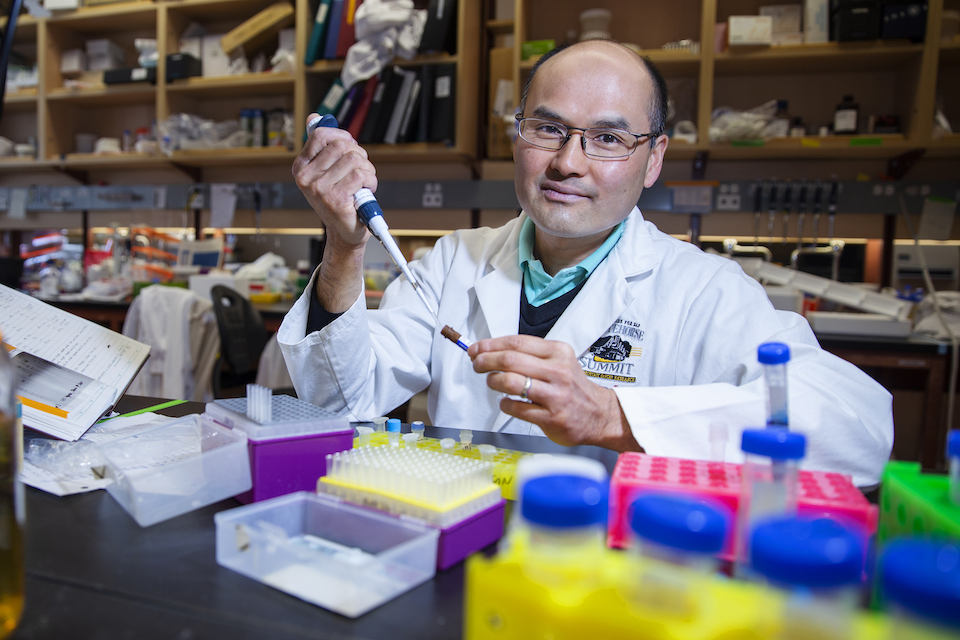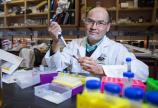Focus on sugar in new immune cell cancer research

A strong understanding of how the body processes sugar is crucial in designing one-of-a-kind cancer treatments that harness the immune system to fight the disease, says University of Victoria immunologist Julian Lum, the recipient of a $1.08 million research grant.
Both immune cells, or T cells, and cancer cells need glucose to grow. UVic scientists are now researching a new type of immunotherapy that factors a patient’s diet as a means of engineering natural immune cells to fight cancer. This process—known as CAR (chimeric antigen receptor) T-therapy—enhances immune cells to provide them with the armour needed to win the “constant nutritional arms race for glucose,” says Lum, who is also a scientist with BC Cancer’s Deeley Research Centre in Victoria.
“The cancer and immune cells are constantly in this fight for nutrients. We are the only academic team in Canada approaching the problem by studying this nutritional arms race to make CAR T-cells more nutritionally fit, thus tipping the balance of power away from the cancer cells and in the favour of immune cells,” says Lum.
CAR T-cell therapy empowers the body’s natural immune cells to detect and eliminate cancer. While it has been successful in treating leukemia and some types of lymphoma, it has been less effective in treating “solid cancers” such as prostate, breast and ovarian cancer. By studying the link between nutrition and immune cell function, researchers aim to improve the behaviour of CAR T-cells so doctors can more effectively treat a wide range of cancers.
In the past century, the number of people diagnosed with cancer has spiked, adds Lum, noting the main culprit is a diet that has become highly processed, full of sugar and carbohydrates. Changes in diet impact the metabolism and immune system function, which changes how the human body can respond to and fight serious illness like cancer.
The focus on diet and immunotherapy such as CAR T reflects a growing trend in health care known as “precision medicine,” or customized, information-driven patient focused health care, says Lum. The focus of the research is to enhance CAR T-therapy so that it may one day assist doctors in providing patients with treatment options based on their own diets and genetic makeup.
A media kit containing high-resolution photos/videos is available on Dropbox.
-- 30 --
Photos
Media contacts
Dorothy Eggenberger (Science Communications Officer) at 250-721-8745 or scieco@uvic.ca
Jennifer Kwan (University Communications and Marketing) at 250-721-7641 or uvicnews@uvic.ca

